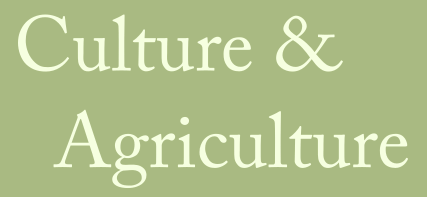HAPPY (DELAYED) PACZKI DAY!
As a Michigan transplant living in California, I always miss the Polish pastry Paczki on Fat Tuesday. The New York Times covers the role of Paczki in a changing Michigan community, Hamtramck, that used to be predominantly Polish Catholic but has since become majority Muslim. While the changing demographics have brought global media attention (often negative), the local reality reflects a peaceful transition, as reflected in the continuing importance of Paczki in Hamtamck every Fat Tuesday: “But around Paczki Day, when most every parking spot was claimed and polka music emanated from bars, there was a sense of optimism, too. Those who have stayed said they had learned to live together, to get along, to see the parallels in the stories of the Polish immigrants who came decades ago and those of the newer arrivals from the Middle East and Asia.”
Insect populations are plummeting around the world, fueling concerns of broader ecosystem collapse. The principle cause of insect loss is agricultural pesticide use. “More than 40% of insect species are declining and a third are endangered, the analysis found. The rate of extinction is eight times faster than that of mammals, birds and reptiles. The total mass of insects is falling by a precipitous 2.5% a year, according to the best data available, suggesting they could vanish within a century.” (The Guardian)
Plummeting insect populations are part of a broader trend in monoculture agriculture, which threatens global biodiversity. The loss of biodiversity undermines global food production, according to the UN’s Food and Agriculture Organization (FAO). “Over the last two decades, approximately 20% of the earth’s vegetated surface has become less productive, said the report, launched on Friday.” (The Guardian)
A recent analysis of pesticide residue in urine shows that eating organic food leads to significant declines in pesticide levels in our bodies. “They would also discover that after only six days on an organic diet, every single person would see significant drops in those pesticides, including several linked to increased risk of autism, cancer, Parkinson’s, infertility, and other significant impacts on health.” (The Guardian)
Slate reports on the efforts of Dalit female farmers in Tamil Nadu to pool resources and combat climate change, the caste system, and the patriarchy through collective farming. “Against this precarious backdrop, some of the most vulnerable inhabitants of the Cauvery Delta are Dalit women, those formerly known as “untouchables” who are at the bottom of India’s caste system. Excluded from resources and political power, these women are fighting for survival against the three-headed Hydra of climate change, the caste system, and patriarchy.”
Food producers are increasingly relying on food tracking technologies, including Blockchain and QR codes, in order to guarantee the safety of their products. Consumers are driving these changes in response to global food scandals: “Our growing appetite for this information comes from a lack of trust in the global supply chain, fueled by revelations about contamination, fraud, animal welfare and safety-inspection lapses.” (Wall Street Journal)
The BBC features an interview with three linguistic anthropologists about food, language, and identity: “The divisive immigration debate that has been in the headlines across Europe in recent years leached into the everyday talk about a school lunch. And that isn’t a surprise, say Karreaek and fellow linguistic anthropologists Kathleen Riley of Rutgers University, and Jillian Cavanaugh of Brooklyn College and the Graduate Center of the City University New York. Food and the conversations around it are key signifiers of culture, identity and politics.”
The European Union’s Court of Justice (the highest court in the EU) has ruled that animals must be placed in anesthesia through stunning before slaughter in order to qualify for the animal welfare standards of organic certification. Many Jewish and Muslim religious communities forbid sedating animals before slaughter, so this ruling makes it impossible for them to label their kosher and halal meats as organic. (Deutsche Welle)
Photo Credit: Wikipedia Commons

